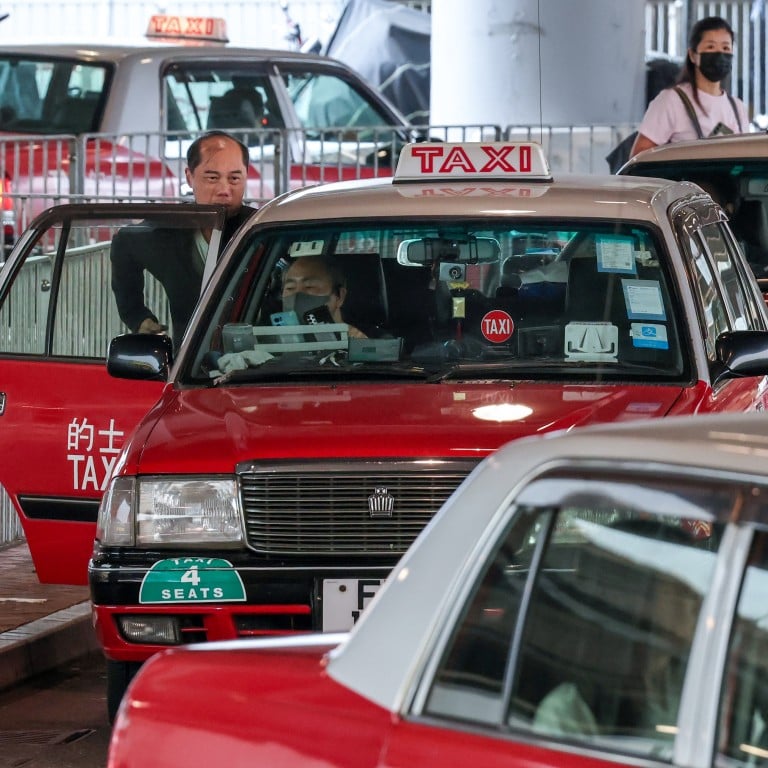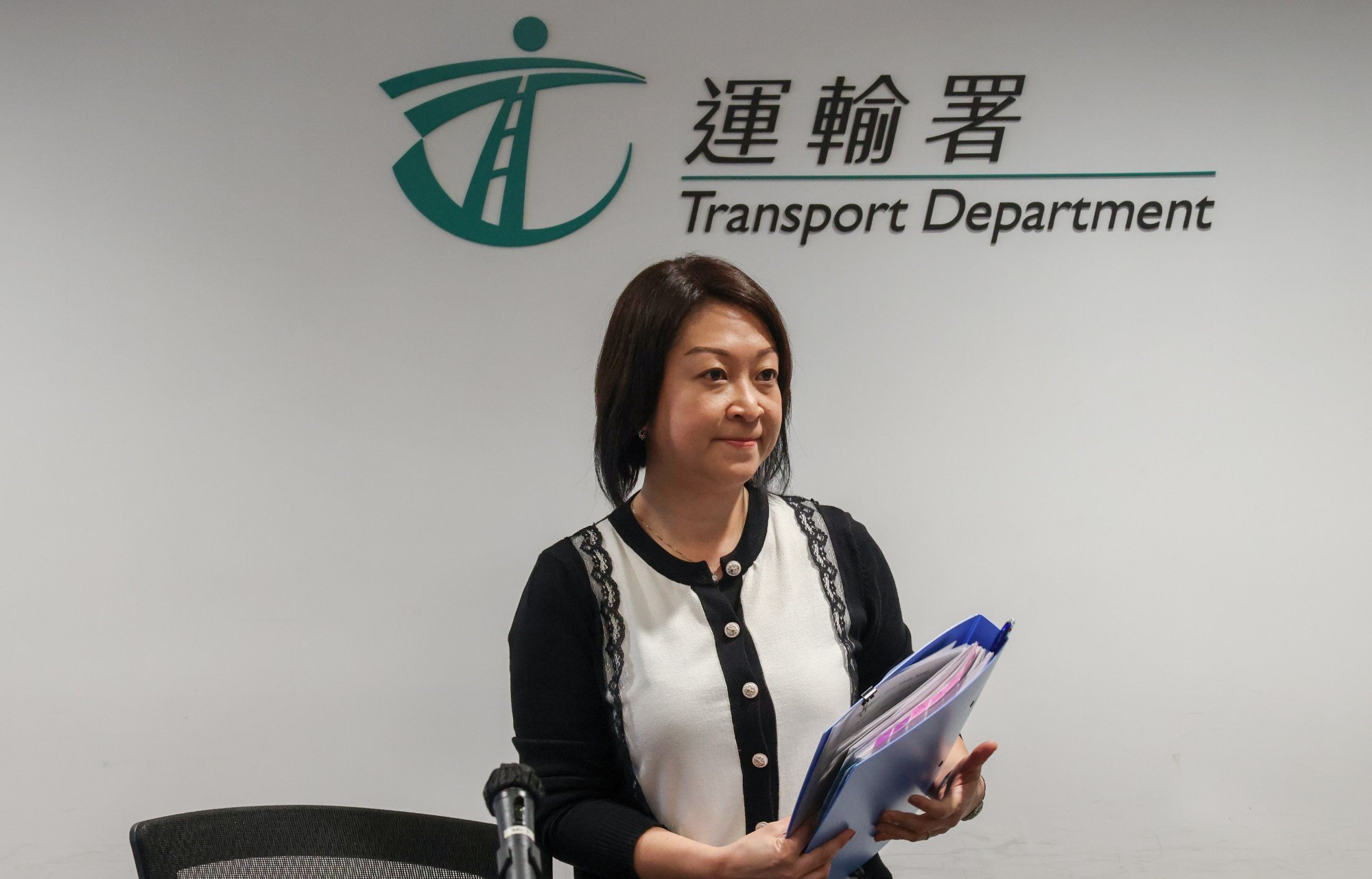
Hong Kong lawmakers hit out at hefty fare increases proposed by taxi trade
- Commissioner for Transport Angela Lee says authorities will strike a balance between the financial sustainability of trade and public’s acceptance of fare increases
- Lawmaker notes the one of the reasons for previous application to raise fares was to improve service quality – which has not happened
Commissioner for Transport Angela Lee Chung-yan on Friday told legislators that authorities would strike a balance between the financial sustainability of the taxi sector and the public’s acceptance of an increase when considering the proposal.
The industry has proposed fare rises of up to almost 17 per cent, including a higher flag-fall rate for red cabs in urban areas from HK$27 (US$3.45) to HK$32, on the grounds of heavier operating expenses and lacklustre business.
“Frankly speaking, since the fare increase in July 2022, our taxi drivers already have a certain amount of growth in terms of their income,” lawmaker Kitson Yang Wing-kit told a meeting of the Legislative Council’s transport panel.
“Looking at a lot of our low-income residents, their income might even have decreased compared with 2019.

Yang noted that one of the reasons for the previous application to raise fares was to improve service quality.
“Two years later, why am I still seeing shady cabbies, the refusal of carriage and such varying opinions of the service provided by taxi drivers?” he said.
The lawmaker also questioned how effective a fare increase would be in attracting new blood to the industry, as well as offsetting high insurance costs.
Hong Kong taxis to join modern world as digital payment platform wins approval
The price adjustment, which the industry came to a consensus on in March 2023, covers taxis operating in urban areas, the New Territories and on Lantau Island.
It suggested a HK$5 increase for the flag-fall rate for red cabs in urban areas to HK$32, a HK$4.50 rise for green taxis in the New Territories and HK$6 for blue ones on Lantau Island – a uniform rate of HK$28.
The industry also proposed an increase in the incremental charge for the first-tier distance travelled after the flag fall to HK$2.10 for red taxis, HK$1.90 for green cabs and HK$1.80 for blue ones, a range between 10 and 20 HK cents.
The average rates for the fare increases would be 16.95 per cent for urban taxis, 15.37 per cent for New Territories ones and 11.68 per cent for Lantau cabs.
A Transport and Logistics Bureau spokesman previously said the taxi trade had suffered from the after-effects of the pandemic for some months, despite its last fare increase in 2022.
He noted that operating expenses in 2023 rose greatly compared with 2019, with insurance costs jumping nearly 60 per cent and an average increase in repair and maintenance costs by about 30 per cent.
“The data reflects that in terms of the current fare levels of taxis, it is fairly difficult to maintain the financial viability of taxi operations,” transport commissioner Lee said on Friday.
Hong Kong police recruit volunteers to help passengers avoid taxis overcharging
Yang was among a number of lawmakers who questioned the extent of the fare increase, which failed to correspond to any improvement in the quality of services.
Chan Pui-leung said taxi drivers had failed to improve risk management and service quality, and called for more scrutiny by the Transport Department on these aspects.
Lawmaker Michael Tien Puk-sun supported a smaller increase of 5 per cent.
“This is not something that they would want, but they have to improve their service,” he said. “Once that is done, we can discuss further increases.”
In the first eight months of last year, police recorded 2,701 complaints of alleged malpractice involving taxi drivers, higher than the pre-pandemic total of 2,298 cases recorded for the whole of 2019.
Most of the cases involved refusing to take passengers and others were about making unnecessary detours and overcharging.
Transport commissioner Lee promised that the government would listen to lawmakers’ suggestions and balance the viewpoints of all parties.
She said a government plan to introduce a taxi fleet licence would increase the service quality provided by the industry, in addition to laws penalising trade offences, including overcharging, refusing or neglecting to take a hire, and causing damage to, or alteration of, a taximeter.

